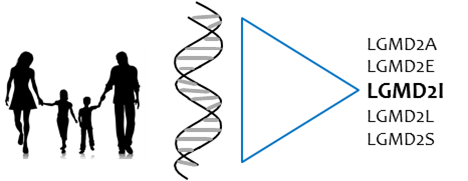
If you are suffering from muscle weakness and have an elevated level of creatine kinase in your serum, you may have muscular dystrophy. There are many different types of muscular dystrophies and the challenge is that there are many genes that, if mutated, can cause muscle weakness. It is important you find out exactly which type of dystrophy you have in order to get proper care. With modern genetic testing, it is now possible to determine which genetic mutation is causing your clinical symptoms. When you begin to discuss genetic testing with your medical specialist, it is recommended to request sequencing a large subset of genes related to muscle biology. They may recommend sequencing only one gene or a small subset of genes based on your clinical symptoms, however clinical symptoms may not be specific enough to select the right genes to sequence. With the advent of cheaper and more efficient sequencing technologies, several initiatives have brought genome wide sequencing to rare disease diagnosis, including to muscular dystrophies. The list below is not exhaustive but includes different approaches to help people with clinically diagnosed muscle disease determine their genetic diagnosis and find out their disease subtype. If you have information for the LGMD2I community about additional resources on diagnosis, share it with us so that we can post it on our site (send to [email protected] with the subject line “Useful Sites”).
Need-to-know: If a blood test detects elevated levels of transaminases (AST and ALT), you need to check your CK level. These transaminases can come from both muscle or the liver. CK can only come from muscle. Finding an elevated level of CK may prevent unnecessary liver tests.
Complimentary Genetic Testing
These programs are very attractive diagnostic options that offer unprecedented access to sequencing technologies and expertise at little or no cost. These programs are complimentary because the genetic data from each sample is also used for other purposes than providing diagnosis. It is important to understand how your data and bio-samples are handled and used.
-
Invitae Corporation

- Invitae has different Muscular Dystrophy Panels. The LGMD panel includes up to 34 genes; the Comprehensive muscular dystrophy panel includes up to 56 genes. This is a sponsored, no-charge genetic testing and counseling program for individuals suspected of having a muscular dystrophy. Link to website
-
Rare Genomes Project

- The Rare Genomes Project was created by a team of experts at the Broad Institute, a non-profit, academic research institution part of of MIT and Harvard. This institute is focused on using genomic data to better understand human health and disease. The Rare Genomes Project focuses on patients with undiagnosed, suspected genetic conditions. It is a research study focused on using genomic sequencing to search for the cause of rare disease and hope to accelerate the rate of rare disease diagnosis in the process. Link to website
-
The Lantern Project
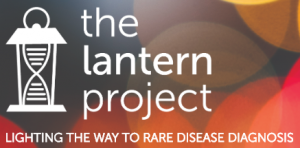
- In November 2018, Sanofi Genzyme partnered with PerkinElmer Genomics to offer a complimentary genetic testing program to several disorders including Limb Girdle Muscular Dystrophies. One of the highlights of the program is the LGMD panel that looks at the sequences of 98 genes associated with LGMDs and other myopathies. Importantly, the LGMD Testing Program previously managed by the MDA has been rolled over into the Lantern Project. Link to website
Additional organizations and companies providing genetic testing services:
-
Blueprint Genetics
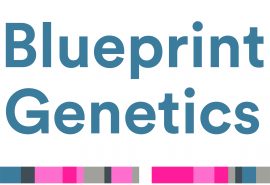
- Blueprint Genetics is a genetic testing company based in Helsinki, San Francisco and Dubai. It has a Comprehensive Muscular Dystrophy and Myopathy genetic test that includes a panel of 73 genes.
-
The MYO-SEQ Project

- The MYO-SEQ project is a research collaboration based at Newcastle University in the United Kingdom. To find the causal genetic variant, they perform whole exome sequencing using DNA from patients with a suspected genetic limb-girdle muscle disease, analyzing over 400 genes that are known to be associated with muscle disease. Inclusion criteria stipulate that patients must be over 10 years of age at disease onset and have proximal muscle weakness and/or elevated serum creatine kinase activity. Since it is a research project, patients must be anonymized and therefore recruited through their physician. People found to be eligible will be enrolled in the program at no cost to them. For more information, please visit their website or have your clinician contact Prof. Volker Straub ([email protected]).
-
Undiagnosed Diseases Network
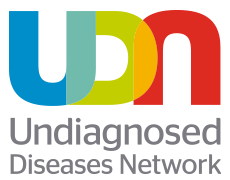
- Undiagnosed Diseases Network (UDN) is an NIH –sponsored research study designed to solve the most vexing cases of genetic diagnosis in rare diseases. Patients who have been unsuccessful in receiving a genetic diagnosis through traditional means can apply to UDN.
-
Rare Diseases Diagnostic
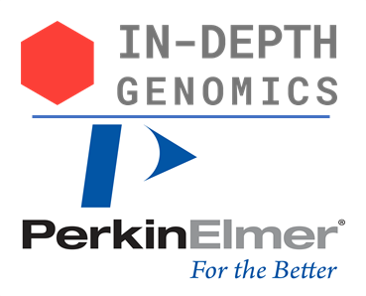
- In-Depth Genomics wants to understand the links between genetics and rare disease. In-Depth Genomics has partnered with PerkinElmer, Inc. to implement a whole genome sequencing diagnostic program that will bring genetic diagnosis to patients across a wide range of neurological conditions including rare/orphan disorders. IDG will offer its program to any U.S. physician and at no cost to the patient. We are not aware that the company has started accepting biological samples (blood draw) from clients.